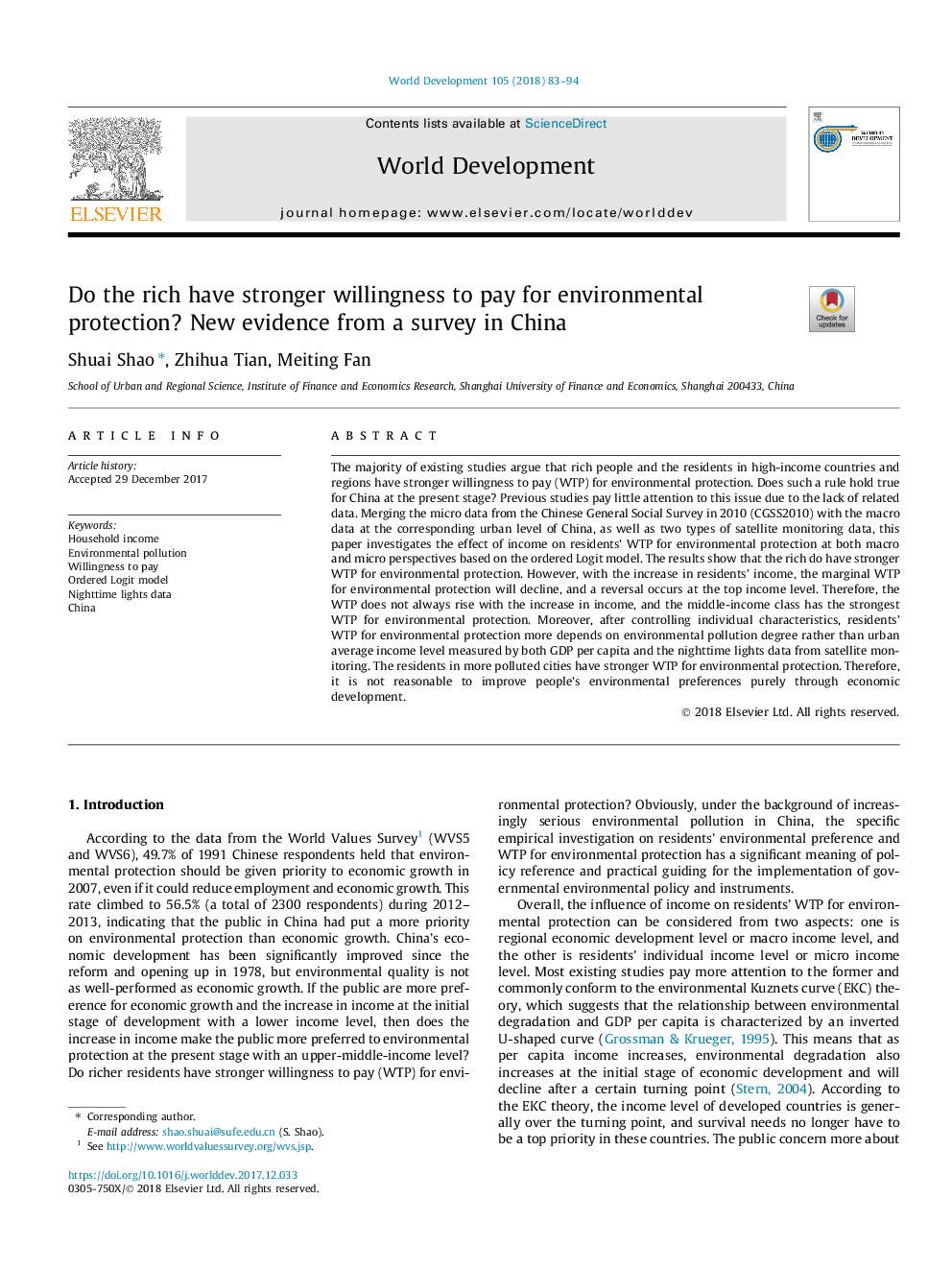| Article ID | Journal | Published Year | Pages | File Type |
|---|---|---|---|---|
| 7392114 | World Development | 2018 | 12 Pages |
Abstract
The majority of existing studies argue that rich people and the residents in high-income countries and regions have stronger willingness to pay (WTP) for environmental protection. Does such a rule hold true for China at the present stage? Previous studies pay little attention to this issue due to the lack of related data. Merging the micro data from the Chinese General Social Survey in 2010 (CGSS2010) with the macro data at the corresponding urban level of China, as well as two types of satellite monitoring data, this paper investigates the effect of income on residents' WTP for environmental protection at both macro and micro perspectives based on the ordered Logit model. The results show that the rich do have stronger WTP for environmental protection. However, with the increase in residents' income, the marginal WTP for environmental protection will decline, and a reversal occurs at the top income level. Therefore, the WTP does not always rise with the increase in income, and the middle-income class has the strongest WTP for environmental protection. Moreover, after controlling individual characteristics, residents' WTP for environmental protection more depends on environmental pollution degree rather than urban average income level measured by both GDP per capita and the nighttime lights data from satellite monitoring. The residents in more polluted cities have stronger WTP for environmental protection. Therefore, it is not reasonable to improve people's environmental preferences purely through economic development.
Related Topics
Social Sciences and Humanities
Economics, Econometrics and Finance
Economics and Econometrics
Authors
Shuai Shao, Zhihua Tian, Meiting Fan,
